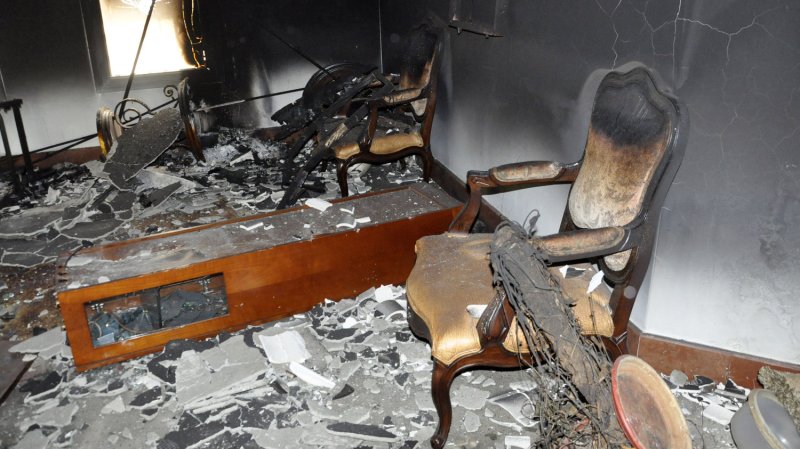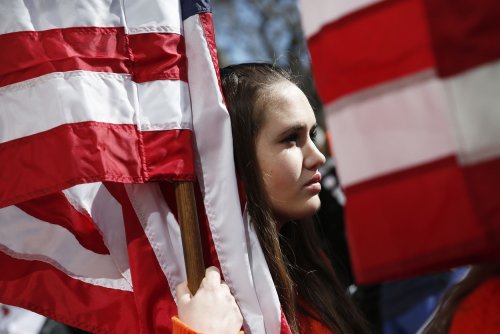A burnt building is seen at the United States consulate, one day after armed men stormed the compound and killed the U.S. Ambassador Christopher Stevens and three others in Benghazi, Libya on September 12, 2012. The gunman were protesting a little known film by an American amateur filmmaker that angered Muslims as it was deemed insulting to the Prophet Mohammad. UPI/Tariq AL-hun |
License Photo
BENGHAZI, Libya, Feb. 5 (UPI) -- The attackers who killed four U.S. diplomatic personnel in Benghazi, Libya, represented several militant forces, including al-Qaida groups, investigators said.
Col. Abdel Salem Ashour, who heads the Libyan Interior Ministry's criminal investigations department, said he thinks the attack was quickly planned by smaller groups with different nationalities among its membership, McClatchy Newspapers first reported Monday.
"Islamist groups have their own agendas, and they have the ability to gather and mobilize. They exploit the lack of security," he said.
Army Gen. Carter Ham, head of the U.S. military's Africa Command, told McClatchy the attackers almost certainly included members of al-Qaida in the Islamic Maghreb, al-Qaida's North Africa affiliate.
"I believe there are individuals who participated in the attacks in Benghazi who had at least some affiliation with AQIM [al-Qaida in the Islamic Maghreb]," Ham told McClatchy. "I don't interpret from that that this was AQIM-directed or even an AQIM-inspired or -supported effort. But the connection is there. And I think that what I am wrestling with is: What is the connection with all these various individuals or groups?"
The case had been turned over to a judge in Tripoli, Ashour said, indicating suspects may have been identified. However, he said no arrests have been made since the Sept. 11 attack on the U.S. Consulate in which U.S. Ambassador Chris Stevens and three other Americans.
Ham and Ashour said they're still trying to determine what motivated the attack, saying they thought anger over the killing of a top al-Qaida official by a U.S. drone strike in Pakistan was a factor.
"There are some indications that was part of the motivation for some of those who participated in the attack. Whether it was the compelling reason or not, I think, is hard to say," Ham said.
Ashour said protests in Egypt over an inflammatory video produced in the United States that denigrated the Prophet Muhammad may have motivated smaller groups, McClatchy said.
"Each group used [the assault] for its own interests," Ashour said. "One used it for the film and another used it for the leader that was killed. And there were other thieves who used it for the sake of stealing."
The assault prompted several U.S. congressional investigations into why the two U.S. compounds in Benghazi -- the consulate and the CIA station in eastern Libya -- were poorly defended. Defense Secretary Defense Leon Panetta and Army Gen. Martin Dempsey, chairman of the Joint Chiefs of Staff, will testify Thursday before the Senate Armed Services panel.















